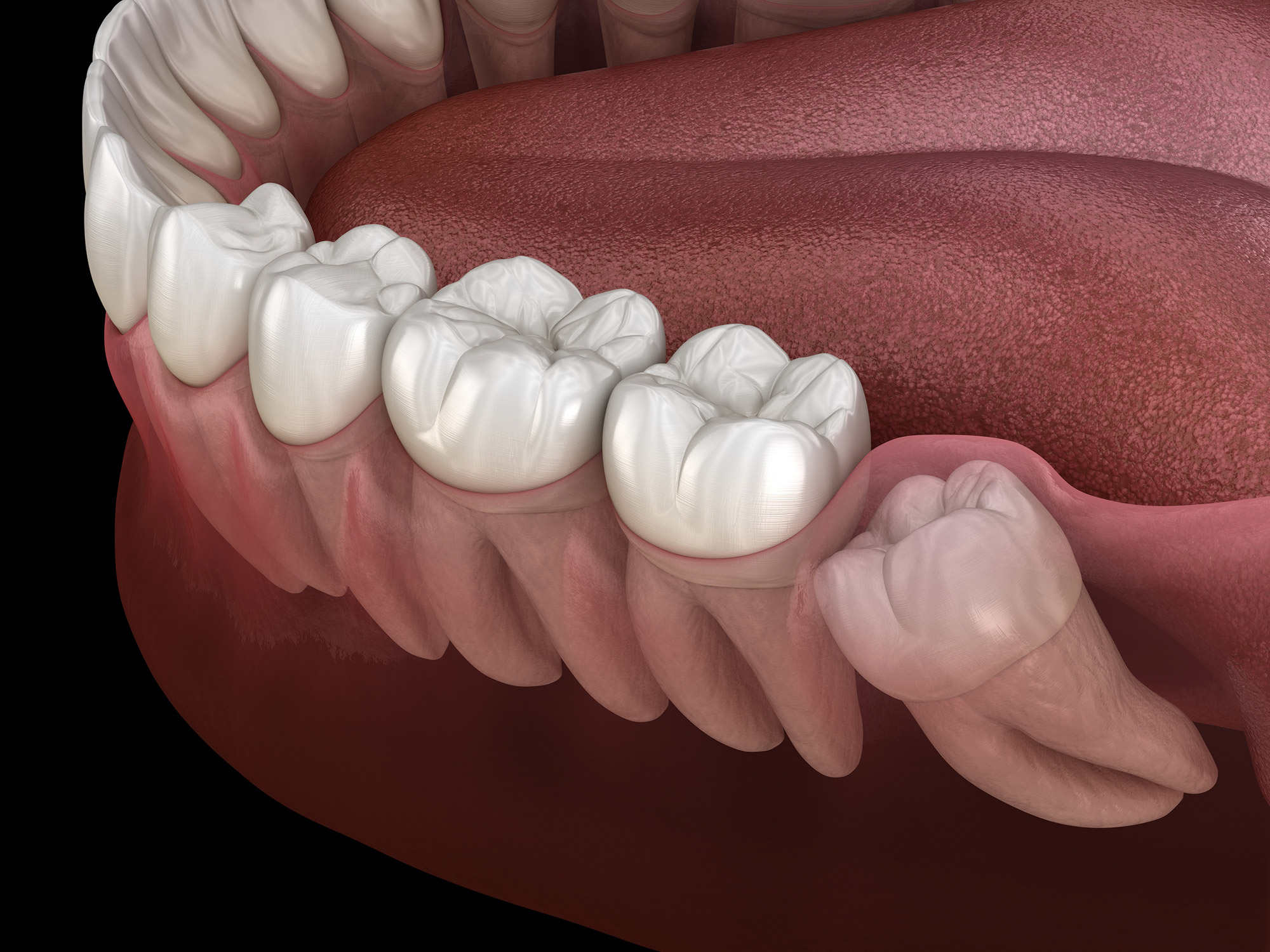


In future posts we’ll be looking at, and demystifying, other aspects of a dental treatment plan that may be hard for the lay person to understand. They’re tools for eating, a part of our bodies, and a fascinating case study of how the evolution of human culture and diet can impact human development and growth.So that’s a handy guide for understanding teeth numbers in your treatment plan. Wisdom teeth are not necessarily essential but they’re not useless, either.

Watchful waiting may be a reasonable approach, and one advocated by several federal and public health agencies, as well as dentists. On the other hand, removing molars late in life can be harsh on elderly, fragile or ill patients. When should you get them taken out? Some surgeons prefer to remove wisdom teeth early, at age 16 or 17, even though these molars may still rotate and emerge properly. These molars probably will need to come out. But others can damage the second molar and surrounding jawbone, or cause infection and pain. Some impacted wisdom teeth don’t pose risk. They may have to brush these hard-to-reach teeth extra carefully to avoid decay. Healthy, erupted wisdom teeth aren’t usually a big problem for most people. Shunning non-essential surgery is why we no longer routinely send kids for tonsillectomies. That’s a big waste of time, energy, money, avoidable pain and risk. Up to one-third of these surgeries are needless.Įxtraction surgery carries its own risks, too, including injury to nearby teeth, nerves, jawbone or sinuses. The treatment rate for wisdom tooth problems is higher than the rate of impaction itself. Millions of wisdom tooth extraction surgeries are performed worldwide each year.

While science can’t yet say for sure that it will work, it probably can’t hurt. And if you have kids, encourage them to eat jaw-moving foods as early as it’s healthy to do so. Start eating crunchier, chewier foods, such as nuts and raw vegetables. Very soon after, bone starts to fill in the. The clot protects the socket from any contamination or other foreign matter getting in and irritating the nerves and blood vessels. If you’re still growing, you can act now. After the tooth is extracted, a blood clot forms in the empty socket (this sounds really gross, but mostly it just means it bleeds for a little while and then stops). As a result, for the past few decades, we’ve probably not been maxing out the growth potential of our jawbones.Ĭould crunchier diets make impacted wisdom teeth a thing of the past? (Shutterstock) These days, we tend to feed our jaws soft, processed foods, like smooth peanut butter on squishy bread. Our jaws evolved to expect biomechanical stimulation from a diet of, say, nuts, uncooked veggies and raw meats. The same holds true for humans who eat non-industrialized diets. Something to chew onīased on what we do know, can we prevent impaction? Maybe.Īpes rarely have impacted wisdom teeth. We need new ways to help dentists reliably predict which wisdom teeth are at risk. Scientists still can’t explain why some wisdom teeth become impacted. If the jaw doesn’t grow long enough, fast enough, later-forming wisdom teeth also run out of space and can’t erupt properly, if at all.īut space isn’t the whole story. (Denver Marchoiri/University of Saskatchewan)Ī related problem is jaw growth and overall length. Wisdom teeth are called ‘impacted’ when they don’t fully emerge through the gum and into the mouth. Our team found that when wisdom teeth develop and emerge very late, most of this space is already claimed by the first and second molars, so the wisdom tooth can’t move upwards and through the gums. The main reason we get impacted wisdom teeth is lack of space at the back of the jawbone. There are, however, several risk factors for impaction, including what we eat. This would stop us from passing on any genes that might lead to impaction.īut it’s unlikely that specific “impaction genes” exist in the first place. Even if they did, for evolution to select against wisdom teeth, impacted molars would have to cull us from the gene pool before we had kids. But I don’t think so.įirst, impacted wisdom teeth may cause us problems, but they rarely kill us. Wisdom teeth are not only the teeth most often impacted, but also the teeth that often fail to form at all.īecause wisdom teeth aren’t essential to modern human survival, people often ask whether evolution is weeding out this bothersome trait. (Denver Marchoiri/University of Saskatchewan)Ī tooth that doesn’t properly emerge through your gums and into your mouth is “impacted.” Impacted teeth can be linked to problems including gum disease, cysts or damage to the second molar.Įven when wisdom teeth start out badly angled, they can rotate and shift position in your 20s or 30s. Wisdom teeth start forming much later than all the other teeth in your jawbone.


 0 kommentar(er)
0 kommentar(er)
